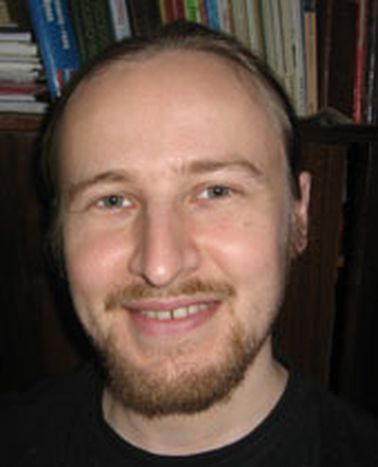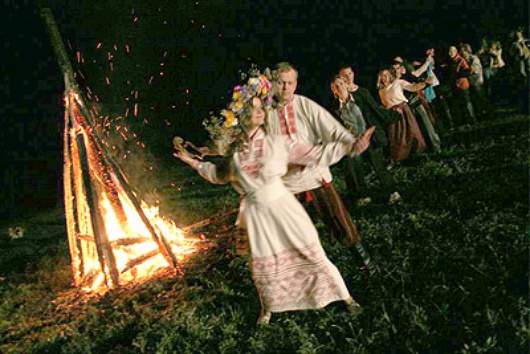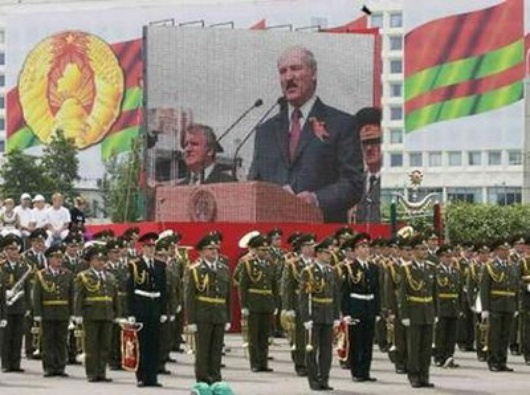
Who Are We, People? To Be or Not to Be…
Published on
© Andrei Khrapavitski, Belarusan American Blog Read at the site Andrei Khrapavitski B.A. in political science (European Humanities University, Vilnius, Lithuania) M.A. in journalism and mass communication (University of North Carolina in Chapel Hill, USA) The malformed Belarusian identity is one of the liveliest topics constantly discussed in the Belarusian blogosphere.
Our intellectuals, think tanks, political analysts, EHU professors, the opposition, the president are all trying to answer a sacramental question – who the f*ck are we? I am still trying to persuade you that MY vision of who we are is better, more consistent, more believable than yours. You are trying to outcry my position and win the debate. We yell at one another, call names, attempt to usurp the truth (as if knowing what it really was). It is entertaining, isn’t it?
Correct me if I am wrong, but this overblown debate about the Belarusian identity is not a mass hysteria, rather a controlled phenomenon. It is basically limited to two distinct groups of people: 1) those who care but do not have the power to influence the identity on a national scale, and 2) those who have the means to channel the process in the direction they want.
The first group
 Well, that’s all of us, the dinosaurs of the Belarusian civil society, dissidents, bloggers, self-made philosophers, poli sci gurus, online pranksters, nationalists, socialists, radicals, anarchists, globalists, traditionalists, etc.
Well, that’s all of us, the dinosaurs of the Belarusian civil society, dissidents, bloggers, self-made philosophers, poli sci gurus, online pranksters, nationalists, socialists, radicals, anarchists, globalists, traditionalists, etc.
celebration of Midsummer Night according to the Belarusian tradition
Our identities are motley. Some call themselves Litvins, others consider themselves Crivians (Kryvicy). Some crave for the renaissance of the Baltic identity our forefathers had lost; others are more into the Christian values of Sarmatism. By far, majority would consider themselves Belarusians. “Consider” is the right word here. We are still considering what it really means to be Belarusian, what essence underlies such choice. We even have a national campaign “To Be Belarusian” dealing with this question. We try to answer it as vocally and convincingly as we can, but we do not belong to the group which pulls the strings and answers this question for all of us.
The Second Group
 This is the group that does answer it. The officialdom, the power, the government, the president, the academy of science, the ideologues… This is where the rule setters fine-tune the process of the Belarusian identity formation. Clearly, over the past few years, the officially-endorsed version of the Belarusian identity has prevailed. It is de-ethnicized, based around a citizenry concept as opposed to the ethnic or lingual belonging. The Russian language serves as the default language of communication, the role of history is undervalued and interpreted very superficially, the national horizons are paradoxically self-isolated and openly cosmopolitan, or, at least, pan-Slavic.
This is the group that does answer it. The officialdom, the power, the government, the president, the academy of science, the ideologues… This is where the rule setters fine-tune the process of the Belarusian identity formation. Clearly, over the past few years, the officially-endorsed version of the Belarusian identity has prevailed. It is de-ethnicized, based around a citizenry concept as opposed to the ethnic or lingual belonging. The Russian language serves as the default language of communication, the role of history is undervalued and interpreted very superficially, the national horizons are paradoxically self-isolated and openly cosmopolitan, or, at least, pan-Slavic.
Independence day in Belarus, 3rd of July, Minsk
The official mainstream identity overwhelms the alternatives. Absolute majority of Belarusian citizens call themselves Belarusians, but the meaning of being Belarusian is vague, perfunctory and shallow. It is ripped off any traces of ethnic nationalism. It is also de-Europeanized, de-Westernized. It is heavily sprinkled with Orthodox values, under-formulated patriotism dogmas, wavering between a pro-Russia incest-like brotherhood and an anti-Russia near-fratricide.
Many folks in the first group share some limited aspects of the officially endorsed identity. The first group is much more active in theorizing the identity- and nation-building, but they have no means to translate their visions to the wider populace. The second group, the dominant power, totally rules the identity building process in Belarus.
As it seems to me, even when the Lukashenka regime falls, the nation he has been quite efficiently constructing over the past decade, will live on as the dominant post-ethnic, citizenry-based society. Any attempts to build an ethno-centric Belarus, let alone the alternative Krivian or Litvin projects, will face misunderstanding and serious opposition from the populace.
I believe that the only way to confront a malformed near-postmodern identity without disfranchising anyone is via promoting another similar postmodern identity – European, post-Western and globalizing. Would Belarusians want to Europeanize? Would Europe care to welcome a country with the national identity not that firm as in Poland or Germany? Guess what, a small country with less nationalistic, less ethno-centric society is much easier to chew for post-national Europe. Of course, it is not yet clear whether the European project itself would streamline towards the postmodern citizenry-based unity or the nation-states would further postpone the process. Anyway, European Belarus is probable; an ethno-centric Belarus is not.



